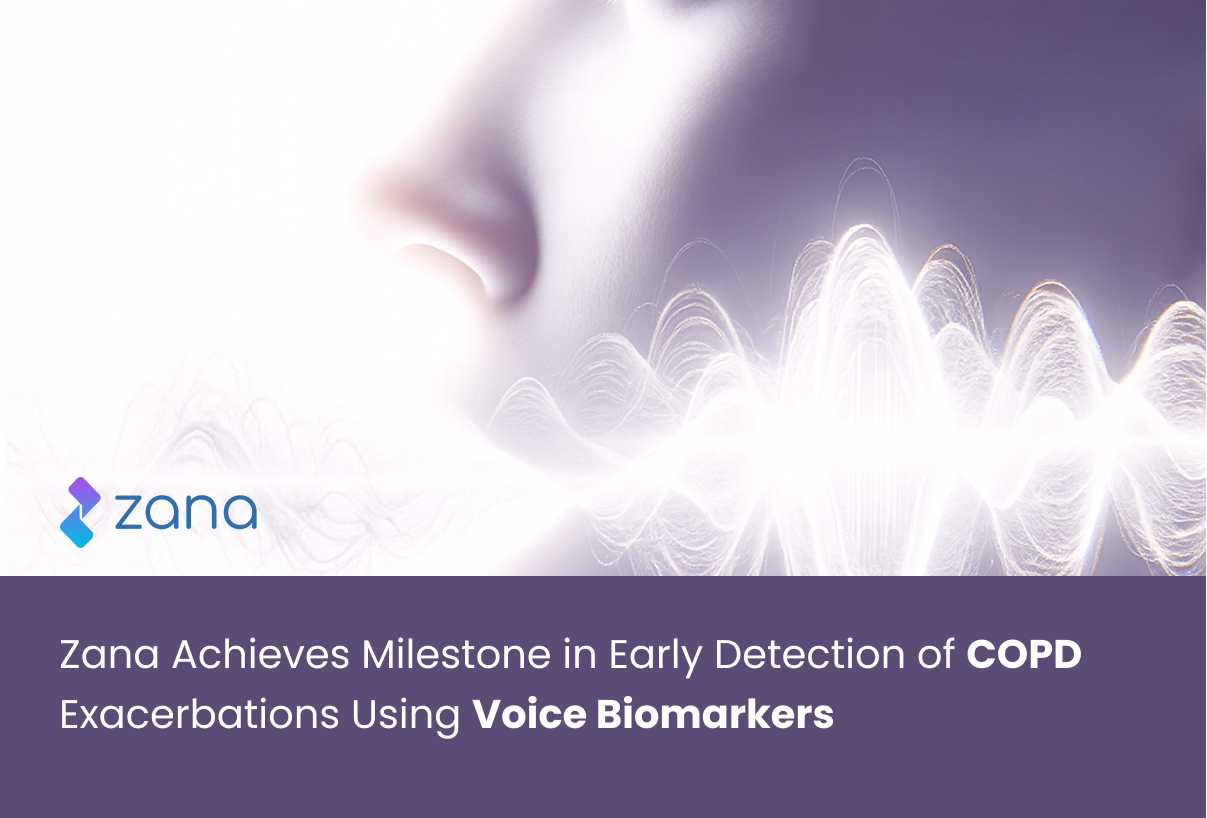Zana Achieves Milestone in Early Detection of COPD Exacerbations Using Voice Biomarkers

Berlin, October 2025 – Zana Technologies has reached an important milestone in respiratory health research with the publication of its latest study, presented today at the ITG Conference on Speech Communication 2025.
The study demonstrates that just a few minutes of speech can reveal early signs of worsening in COPD patients—days before clinical exacerbation, the leading cause of hospitalization in people with Chronic Obstructive Pulmonary Disease (COPD).
Zana's machine learning model detected 79% of exacerbations up to three days before onset, and 85% by the time of onset, marking a major advance in non-invasive respiratory monitoring.
The Breakthrough: Detecting COPD Worsening Before It Happens
Early detection of COPD exacerbations (ECOPDs) remains one of the greatest challenges in chronic disease management. The prodromal phase—where subtle physiological changes occur before symptoms become clinically visible—has long been underexplored.
Zana's study is among the first to show that acoustic biomarkers extracted from simple voice tasks can signal this phase, enabling timely intervention and potentially preventing hospital admissions.
The research analyzed longitudinal voice recordings from COPD patients using sustained vowel and text-reading tasks, capturing real-world data across multiple clinical visits.
The results show consistent early trends:
- ↓ Maximum phonation time (MPT)
- ↑ Jitter & shimmer (instability, breathiness)
- ↓ Harmonics-to-noise ratio (HNR) & Cepstral Peak Prominence (CPP) (weaker voice quality)
- ↑ Formant frequencies/bandwidths (reduced articulatory precision)
What Makes This Work Unique
Unlike previous studies focused on detecting exacerbations after onset, Zana's approach targets the prodromal window—the earliest, most elusive stage of symptom worsening.
The VOICE-BIOME™ platform, developed by Zana, enables large-scale voice data analysis and feature extraction, allowing researchers and clinicians to explore complex, condition-specific vocal patterns with reproducibility and clinical rigor.
"Our goal is to make voice a reliable, accessible health biomarker — one that empowers proactive and preventive care," says Dr. -Ing. Julia Hoxha, CEO and Scientific Lead at Zana. "This study shows that we can detect meaningful physiological change from voice alone, days before clinical diagnosis."
Collaborative Innovation in Respiratory Health
This study is the result of a long-term collaboration between Zana Technologies and Maastricht University Medical Center+ (MUMC+), led by Dr. Sami Simons, a leading pulmonologist in COPD research.
Voice reflects subtle shifts in breathing control and airway function. By analyzing those patterns over time, we can detect deterioration much earlier and help patients receive care before they reach a crisis.
Zana engineer Lars Nippert led the machine learning development for this work, which builds on years of interdisciplinary research between data science, signal processing, and clinical medicine.
Why It Matters
COPD affects over 480 million people worldwide, with exacerbations accounting for the majority of hospitalizations and healthcare costs.
Voice-based monitoring could provide a scalable, non-invasive tool for continuous disease management — improving quality of life and reducing strain on healthcare systems.
This research represents a major step forward in Zana's mission to unlock voice as a digital biomarker for health, bridging AI innovation with clinical reality.